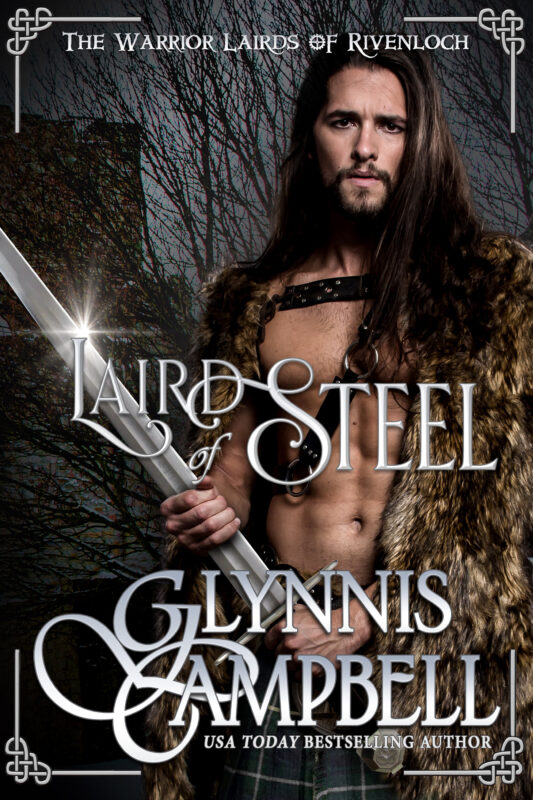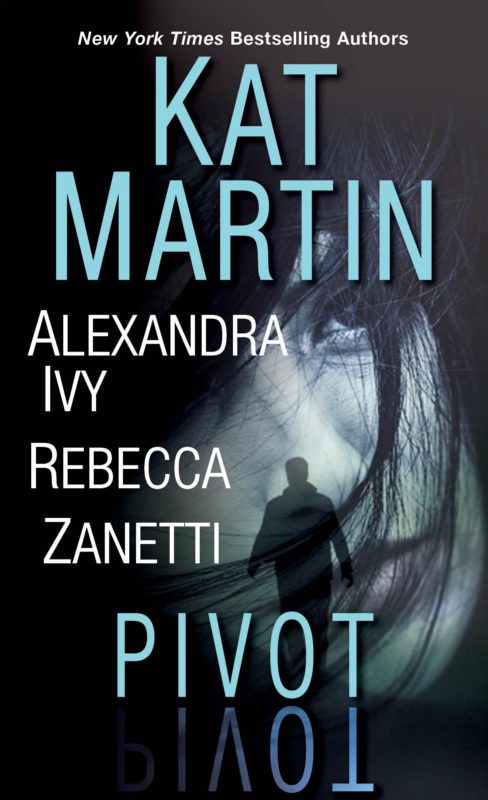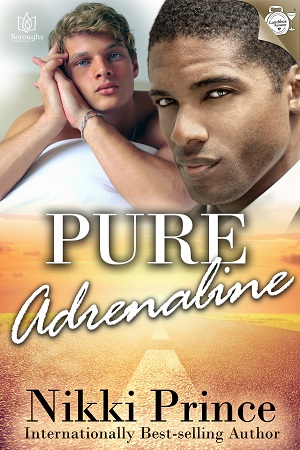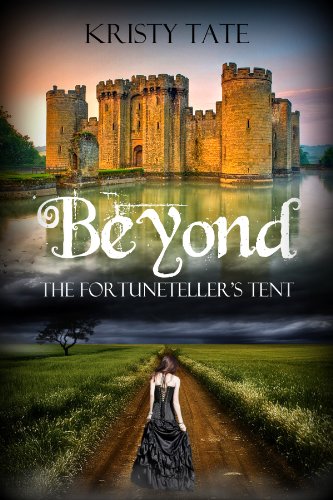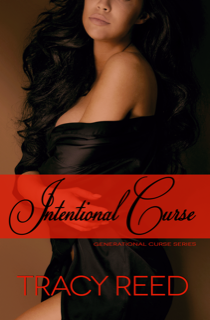Writing The Dreaded Book Blurb by Jenny Jensen
March 19, 2021 by Jenny Jensen in category On writing . . . by Jenny Jensen tagged as Blrubs, clickbait, Marketing, writing
Cartoons by John Atkinson, www.wronghands1.com
Writing The Dreaded Book Blurb
Every author faces this last crucial challenge. You’ve already spent untold hours researching, writing and editing your book. Your title hits just the right poetic note. You’ve gone several tense rounds to find the perfect cover. All that remains is the book blurb, the opening salvo in the promotional war. This is the first (and sometimes only) chance to grab a reader and compel them to buy the book. And so, like click bait, you need to lure your reader with an honest but irresistible snap shot.
It’s an art, this writing of a synopsis that isn’t a synopsis, this sell copy that isn’t an ad. And for something that isn’t a science there are strict rules: you have to be honest – no misleading the reader. No spoilers or why bother to read it – which can be tough since the spoiler is often the most exciting part of the story. Keep it at 200 words or less and don’t make it one run-on paragraph. Use the proper keywords for your genre. Reveal something about the antagonist – readers like to know if they can root for the hero. This isn’t the place to relate the entire plot but you have to provide the zeitgeist, the feel of the tale. No easy task.
A lot of the writers I work with find this daunting and ask for help, which I am happy to provide. I think it’s difficult for the writer to step far enough away from their work to pick out the enticing, salient points and present them with the tension and intrigue that make for a successful blurb. To the author, all story points are important. I get that, but as an avid reader I know what works for me in a blurb. It’s not how much is said, but how compellingly it’s said.
I start with a deconstruction approach. It’s possible to distill any story down to bare bones. In his book Hit Lit – Cracking the Code of the Twentieth Century’s Biggest Bestsellers James W. Hall provided the most distilled example I’ve ever seen. This is a beloved tale that we all know intimately: “A young girl wakes in a surreal landscape and murders the first woman she sees. She teams with three strangers and does it again.” It’s short, accurate and intriguing but would it sell the book?
I wouldn’t distill it down that far but it makes a great beginning. What if we knew something about the young girl – an orphan, a princess, a refugee? And what about the surreal landscape – gaping desert, oozing swamp, forbidding mountains? Then the three strangers – female, male, older, menacing, kindly? Is all this murdering spurred by necessity, thrills, defense, the three strangers or is it unintended manslaughter? And finally, what is the young girl up to – revenge, enlightenment, finding a way out of the surreal landscape? Flesh out those points, add some genre keywords, reference any kudos and you could turn those original 24 spartan words into a 160 – 200 word blurb that would peak curiosity and entice the shopper to buy.
If you can step away from the totality of your story and deconstruct the plot to the primary elements, then present those elements in a provocative way you can create an effective selling tool with your book blurb. BTW, that book Hall described? The Wizard of Oz.
Jenny
Identifying and Breaking Bad Writing Habits
March 18, 2021 by marianne h donley in category Ages 2 Perfection Online Class, Online Classes tagged as A2P, A2P Online Class, bad habits
Presented by: Jeffe Kennedy
Date: April 17, 2021, 10AM PT
Pricing: A2P Member fee: FREE
Non-A2P Member fee: $10
About the Workshop:
Learn to identify your bad habits as a writer to improve the quantity and quality of your work.
Jeffe will share some of her approaches, such as Own Your Process, Kick Excuses to the Curb, Listen to Your Editors–and Learn, Study Successful Authors and Keep a List of Recurring Tics. She’ll also help participants discover their own process and what might be getting in the way of more and better writing.
About the Presenter:
Jeffe Kennedy is an award-winning author whose works include novels, non-fiction, poetry, and short fiction. She has won the prestigious RITA® Award from Romance Writers of America (RWA), has been a finalist twice, been a Ucross Foundation Fellow, received the Wyoming Arts Council Fellowship for Poetry, and was awarded a Frank Nelson Doubleday Memorial Award. She serves on the Board of Directors for the Science Fiction and Fantasy Writers of America (SFWA) as a Director at Large.
Her award-winning fantasy romance trilogy The Twelve Kingdoms hit the shelves starting in May 2014. Book 1, The Mark of the Tala, received a starred Library Journal review and was nominated for the RT Book of the Year while the sequel, The Tears of the Rose received a Top Pick Gold and was nominated for the RT Reviewers’ Choice Best Fantasy Romance of 2014. The third book, The Talon of the Hawk, won the RT Reviewers’ Choice Best Fantasy Romance of 2015.
Two more books followed in this world, beginning the spin-off series The Uncharted Realms. Book one in that series, The Pages of the Mind, was nominated for the RT Reviewer’s Choice Best Fantasy Romance of 2016 and won RWA’s 2017 RITA Award. The second book, The Edge of the Blade, released December 27, 2016, and was a PRISM finalist, along with The Pages of the Mind. The final novel in the series, The Fate of the Tala, released in February 2020, along with a short novel epilogue, The Lost Princess Returns. A high fantasy trilogy, The Chronicles of Dasnaria, taking place in The Twelve Kingdoms world began releasing from Rebel Base books in 2018. The novella, The Dragons of Summer, first appearing in the Seasons of Sorcery anthology, finaled for the 2019 RITA Award.
Kennedy also introduced a new fantasy romance series, Sorcerous Moons, which includes Lonen’s War, Oria’s Gambit, The Tides of Bàra, The Forests of Dru, Oria’s Enchantment, and Lonen’s Reign. And she released a contemporary erotic romance series, Missed Connections, which started with Last Dance and continues in With a Prince and Since Last Christmas.
In September 2019, St. Martins Press released The Orchid Throne, the first book in a new romantic fantasy series, The Forgotten Empires. The sequel, The Fiery Crown, followed in May 2020, and culminates in The Promised Queen in 2021.
Kennedy’s other works include a number of fiction series: the fantasy romance novels of A Covenant of Thorns; the contemporary BDSM novellas of the Facets of Passion; an erotic contemporary serial novel, Master of the Opera; and the erotic romance trilogy, Falling Under, which includes Going Under, Under His Touch and Under Contract.
She lives in Santa Fe, New Mexico, with two Maine coon cats, plentiful free-range lizards and a very handsome Doctor of Oriental Medicine.
Jeffe can be found online at her website: JeffeKennedy.com, every Sunday at the popular SFF Seven blog, on Facebook, on Goodreads and pretty much constantly on Twitter @jeffekennedy. She is represented by Sarah Younger of Nancy Yost Literary Agency.
http://jeffekennedy.com
https://www.facebook.com/Author.Jeffe.Kennedy
https://twitter.com/jeffekennedy
https://www.goodreads.com/author/show/1014374.Jeffe_Kennedy
Where the Heck Do I Start (Self-Publishing)
March 18, 2021 by marianne h donley in category Online Classes tagged as A2P Online Class, Kathryn Jane, Se3lf-Publishing
Presented by: Kathryn Jane
Date: April 1 – 30, 2021
Pricing: A2P Member fee: $15
Non-A2P Member fee: $30
About the Workshop:
Thinking about self-publishing? Feeling overwhelmed at the thought of taking on what some call a monumental task?
Then you definitely need this workshop which will introduce you to self-pub in a non-frightening way, give you a basic understanding of what to expect during the process, and help you be prepared to navigate the steps.
About the Presenter:
Kathryn Jane, author, artist, and coach, loves to share her knowledge and experience in workshops designed to assist others in every stage of their publishing adventure. Her own career has included everything from short stories and novels, to multi-book series. Whether romantic suspense or the escapades of feral cats, Kathryn’s unique voice will take you on a journey rich with pitfalls on the way to the always promised happy ending.
Writing the Private Investigator
March 17, 2021 by marianne h donley in category Ages 2 Perfection Online Class, Online Classes tagged as A2P Online Class, PIs, Private Investigator, writing research
Presented by: Steve Pease
Date: April 1 – 30, 2021
Pricing: A2P Member fee: $15
Non-A2P Member fee: $30
About the Workshop:
Television and movies do not reflect real life. Surprised? The Private Eye’s image in the mind of most Americans (and elsewhere) was formed on the screen and in pulpy mystery novels, and it’s mostly wrong. We don’t pull guns, beat up thugs, drink whiskey with a straw or take dirty photos thru motel Venetian blinds. We’re in a tough business, and we need insurance, permits, equipment and coffee. Oh, and good shoes and a comfy chair.
This 12 Lesson course will present a very practical view of the single-person PI business based on my experience as a licensed PI2 in Colorado. I’ll cover the main duties of the investigator, the effort needed to run a sustaining business and a few anecdotes to illustrate points. I’ll recommend resources, steer you away from a few, and suggest a couple things you can do to experience the PI life, AND, get some real-life details into your stories.
So your Hero is over 35, and maybe over 55. And they want to make a career change? What the hell do they bring to this? EXPERIENCE. And maturity from those hard lessons earned and learned during a working life. The punk kid hasn’t learned yet. You have. Most PIs aren’t life-long PIs, but they have been curious forever. Most have done something else, reporter, librarian, civil servant, cop, military, nurses. Their minds have discipline. They’ve been people watchers. They know an opportunity when they see it, so here they go. And they will succeed at THE core PI task: Find Out About. My Lessons aren’t simple Conference handouts. They’re writing resources. You can lurk. And you can imagine and ask. My two main mystery characters are late life PIs. Let’s see how this works.
About the Presenter:
Steve Pease is a licensed Private Investigator in Colorado. He is retired from a career in Intelligence and space engineering. He also teaches a course in writing against the intelligence cliché. He has published military history and SF/mystery/horror fiction as Michael Chandos. He is working on a romantic-suspense novel featuring an elegant lady who runs a lacey tea shop – and who knocked off her abusive husband with some lethal tea and put him in the rose bed.
The Black Candle Killings Book Tour and Giveaway
March 17, 2021 by marianne h donley in category Rabt Book Tours tagged as HappyLondonPress
Detective Thriller
Date Published: March 1st 2021
Publisher: Happy London Press
A church going district of North London and a neighbourhood where friendly residents know each other. But when a brutally murdered woman is found next to a burned-out black candle, a strange mark etched deep into her back, the locals became afraid.
Her old boss, a Chief Superintendent in the Met, calls for PI, Tammy Pierre’s assistance. He’s aware of her Caribbean links, and knowledge of Obiah, a voodoo curse found in Trinidad, and used, some claim, to commit bizarre murders. So, is it voodoo? Or just superstition?
A trip to the West Indies reveals some disturbing facts, new evidence of child abuse and murders going undetected for over twenty years.
Returning to London, her situation becomes dangerous – is it all more than Tammy had bargained for?
About the Author
Having never written a dramatic word in my life some thirty years ago, an idea for a short story popped into my head. With the encouragement of my wife and daughter I wrote a tale about a timid and ineffectual man and his pet cat, called Cat and Mouse. Wife and daughter approved so I produced more stories and then joined a writers’ group who also liked what I wrote.
Sir George Everest said, they climbed that mountain, ‘Because it is there.’ The same might be said of writing. Why do we write? because of the idea, the notion, the thought. ‘Because it is there,’ and the irresistible urge to put it down in print.
My inspirations have come from real people, events or situations that have presented themselves. Titles like, I am a Contract Killer, Beads of Blood, Death Zone, License to Kill, are all based on my own lifetime experiences, questions asked, incidents occurring. So far, nobody has been murdered on my watch. But the notion gave rise to the impetus to write my first murder mystery, The Lyme Regis Murders. Could I make the jump after years of writing macabre short stories to a full-length drama? That familiar beating in the gut, said, ‘Yes, try it. Give it a go.’
And so to that cosy coastal town where nothing untoward ever happens. Or perhaps it does. The author seeks to shatter notions, change people’s perceptions, spoil long held views. That was my intention in entering into the world of crime thrillers. I’ve found that ‘nice’ people are not always what they seem. The helpless can be transformed into the most dangerous, the most dangerous become the most harmless. It’s all up to the writer and what they’re hoping to achieve. For me, so far, there have been several children’s books, one collection of short stories, with three more planned and three novels completed, plus a fourth in the mixer.
Whilst a short story might be written with a flurry of adrenalin in the space of a few hours, a book will need more than just a flash of creativity. It will need, perseverance, discipline and dogged determination. But then, isn’t that what is required of every ambition?
Contact Links
Purchase Links
Excerpt
The Black Candle Killings
Andrew Segal
Prologue
Yuh gonna die!
“Hmm? Watch you say, lady? Hear me now, hear me. Don’t y’all cry. You muss up yuh face. Me ain’t gonna hurt you none. Gonna be quick an’ easy. All be over soon, soon. You understan’? De Lord, he am waitin’ for yuh.”
Lillian Persaud hadn’t had sex with Tom for over a month. As she made for the office at a brisk trot, she smiled to herself. Gorgeous fresh morning. Gentle breeze. A few spots of rain tapping at her brolly. Some wispy grey cloud. Might warm up later, though. Bound to really, she thought with her usual optimism.
Out of the corner of her eye she spotted something moving. A shadow; perhaps her own? Couldn’t place it. Coming from behind a parked car? A moment of unease, but not one to break the glorious mood she was in.
The day ahead, filled with appointments, staff meetings and then, this weather forecast had said it would be a mixed day, so at least there’d be some sun to look forward to.
Business was getting busier by the week in her expanding company, Persaud IT Ltd. A hectic day ahead of her. Evening to think about.
Plans for sex, she mused. Lots of it. Asap. On the agenda. And about time too. She smiled again at the prospect. Some soft music; modern jazz. The contemplative tones of Miles Davis’s trumpet. Chic Corea on piano. Tom’s favourite record, Peggy Lee singing, ‘Some Cats Know’, and she added mentally the following refrain, ‘How to go real slow’. Tom knew how to go real slow. Lovely man. What a wedding night they’d had. Not a real wedding, but an exchanging of vows and commitment before an Unofficial Officiant in a Humanist service. They both had their own reasons for preferring to avoid a religious ceremony. A couple of dozen close family and friends in a tiny hotel off the beaten track, near to Bourton-on-the-Water, in the Cotswolds.
Of course, it wasn’t the first time they’d made love, but Tom made it feel that way. It was as if he’d saved something special for just that evening. Up till then, every night with him had been special. But, wow! she thought. Was that night extra special, or was it not?
Not too many nights like it since the baby. Gracie was a demanding tot, and now an even more demanding little girl. Still, she thought, their imp seemed to have got over her current bout of sleeplessness.
Someone on the other side of the street, emerging from behind a tree this time, looking at her. Looking at her? A phantom silhouette. Following her. Dark tracksuit and trainers. Hoodie obscuring the face. Soundless steps. Were they smiling? She couldn’t see.
Lillian frowned for a moment. No-one else around. Early morning. A few parked vehicles. An unexpected feeling of loneliness. Maybe they were scowling? She hurried on, getting nervous now, her heels clicking on the pavement, echoing in her ears.
Like being on the ghost train in a fairground. Never sure what was going to jump out at you. Nothing was going to attack her out here in the street. This was Bloomsbury where bad things didn’t happen. She’d soon be at the office. Door locked behind her. Safe. Then, hot coffee. The world waking up. Staff arriving shortly.
Tom said she was a worrier. “Darling,” he’d told her one day, “if you didn’t have something to worry about, it’d almost certainly worry you.” He was right of course. But worriers get things done, she’d protested. And, looking around, she found her imagined stalker had vanished. A heaved sigh of relief.
Baby Grace had been fractious and her sleepless nights had impacted Lillian and Tom. But there’d been six undisturbed nights when the parents had caught up with some desperately needed shut-eye, and now Lillian was beaming to herself as she mentally planned the evening in.
“Look! Look! See? It say in here in de Bible, Deuteronomy 23, verse 2, dat no-one born of a forbidden union may enter de kingdom of de Lord. Even to de ten generation, none of his descendants may enter de assembly of de Lord. Yuh gonna have to pay, lady.”
Tom loved cooking, but he also liked to eat out. He’d probably booked somewhere for them already. It was their anniversary, that of the first time they’d met. But tonight was going to be all Lillian’s treat. And for a change there’d be no meat. Tom could eat lamb and beef for England, but he’d been told by his doctor to cut down as his cholesterol levels were too high. So tonight, would be fish. Cod, baked in fish stock, with chopped onions and tomato, and a handful of black olives to finish it off. Steamed new potatoes in their skins, dripping in butter, well, maybe not exactly dripping. A mixed salad, with her own dressing. A bottle of Pino Grigio. And for dessert, a blueberry pavlova coupled with vanilla ice cream by Marshfield Farm, an English make on a par with the best of Italian. Divine thoughts.
Tom hadn’t seen the white thong yet. The one with the split crotch. The matching, barely there, white bra. The contrast with her ebony complexion would be stark. Heavens! she thought, I’ll be stark, or as good as. She’d kept them for an occasion like she was going to make tonight’s. Her legs went slightly wobbly at the thought. However would she make it through the day? she wondered.
The first thing she noticed upon opening up the office was that the alarm hadn’t been set the night before. She frowned. Must have a word with the cleaners later today. But, just the same, she thought, worrying.
They’d kept all the original features of the beautiful Georgian building’s interior, whilst managing to lay out desks with smart glass dividers to allow, if not privacy, at least the chance to concentrate on work without the immediate intrusion of others in the room overwhelming you.
There was a separate boardroom for client meetings, and it was to this she presently repaired. She needed to spread out paperwork in a manner more convenient than might be obtained, no matter how many screens she chose to work with. For all her IT skills, sometimes it was the old tried and tested routines that worked best.
Lillian was happy. Happier than she’d ever been in her life. After a ghastly childhood, from which she’d made a timely escape, things were coming together more satisfyingly than she had ever dared to hope.
“Dey all jagabat womans tink dey can fool me. Dey run away from me, but me have catch yuh. Me have seen you, lady, flahntin’ y’all an’ yer babby. Lady, de chile am barn of a forbidden union. Who you tink you is? Me ain’t no dotish man. No mamaguy. Me am gonna bring y’all back to God.”
And yet, that shadow again, from the corner of her eye. And, here? In the office? Her mind playing tricks? Had to be. But why, all of a sudden? She wasn’t normally given to random fears. She’d be seeing ghosts next. Shaking her head resolutely, she told herself not to be stupid.
Then the light pad of a muffled tread, a sharp pinprick in the back of her neck, the warmth of a thin stream of blood, her blood, running down her spine and a cultured voice warning her not to look round.
She felt as though she were being crushed with fear. She couldn’t breathe properly. Her blood was freezing in her veins, as she shuddered, uncontrollably. She could see the papers spread around the boardroom table, but made no connection with them. It was as though she were marooned in a foreign country, where she could neither understand nor make herself understood.
She knew she mustn’t panic, mustn’t scream, because the shadow would want her to scream, would need her to scream in order to exercise power over her. She closed her eyes and breathed in deeply to try to calm her nerves. The voice was educated, could be spoken to. She might use reason. This was clearly a case of mistaken identity which she could quickly establish.
Then the voice changed. The tone dropped by a couple of octaves and to her consternation, the accent was now clearly patois.
Lillian heard a match flare, smelled burning tallow as smoke played around her head. She tried to think who it could possibly be. Racked her brains, uselessly. Didn’t know who it was. No idea in the world. But they clearly knew all about her.
“De candle am burnin’ dong. It have you name on de side, Lillian.
“When it reach de bottom yuh gonna die.
“Hmm? Ah! Now you screamin’, Lillian? Dat’s good. Show y’all repentin’. Keep screamin’ now, Lillian, keep screamin’. Ain’t no-one to hear you.
“Praise de Lord.”
Affiliate Links
A Slice of Orange is an affiliate with some of the booksellers listed on this website, including Barnes & Nobel, Books A Million, iBooks, Kobo, and Smashwords. This means A Slice of Orange may earn a small advertising fee from sales made through the links used on this website. There are reminders of these affiliate links on the pages for individual books.
Search A Slice of Orange
Find a Column
Archives
Featured Books
LAIRD OF STEEL
Gellir faces the one intrepid warrior he may not be able to conquer.
More info →PIVOT
Three friends, each survivors of a brutal childhood, grew up together in foster care. Now as women, they’re fighting for their lives again.
More info →BEYOND THE FORTUNETELLER’S TENT
When Petra Baron goes into the fortuneteller’s tent at a Renaissance fair, she expects to leave with a date to the prom.
More info →INTENTIONAL CURSE
Before Dr. Eric King was with Kyla, he chased Olivia Bennett.
More info →Newsletter
Contributing Authors
Search A Slice of Orange
Find a Column
Archives
Authors in the Bookstore
- A. E. Decker
- A. J. Scudiere
- A.J. Sidransky
- Abby Collette
- Alanna Lucus
- Albert Marrin
- Alice Duncan
- Alina K. Field
- Alison Green Myers
- Andi Lawrencovna
- Andrew C Raiford
- Angela Pryce
- Aviva Vaughn
- Barbara Ankrum
- Bethlehem Writers Group, LLC
- Carol L. Wright
- Celeste Barclay
- Christina Alexandra
- Christopher D. Ochs
- Claire Davon
- Claire Naden
- Courtnee Turner Hoyle
- Courtney Annicchiarico
- D. Lieber
- Daniel V. Meier Jr.
- Debra Dixon
- Debra H. Goldstein
- Debra Holland
- Dee Ann Palmer
- Denise M. Colby
- Diane Benefiel
- Diane Sismour
- Dianna Sinovic
- DT Krippene
- E.B. Dawson
- Emilie Dallaire
- Emily Brightwell
- Emily PW Murphy
- Fae Rowen
- Faith L. Justice
- Frances Amati
- Geralyn Corcillo
- Glynnis Campbell
- Greg Jolley
- H. O. Charles
- Jaclyn Roché
- Jacqueline Diamond
- Janet Lynn and Will Zeilinger
- Jaya Mehta
- Jeff Baird
- Jenna Barwin
- Jenne Kern
- Jennifer D. Bokal
- Jennifer Lyon
- Jerome W. McFadden
- Jill Piscitello
- Jina Bacarr
- Jo A. Hiestand
- Jodi Bogert
- Jolina Petersheim
- Jonathan Maberry
- Joy Allyson
- Judy Duarte
- Justin Murphy
- Justine Davis
- Kat Martin
- Kidd Wadsworth
- Kitty Bucholtz
- Kristy Tate
- Larry Deibert
- Larry Hamilton
- Laura Drake
- Laurie Stevens
- Leslie Knowles
- Li-Ying Lundquist
- Linda Carroll-Bradd
- Linda Lappin
- Linda McLaughlin
- Linda O. Johnston
- Lisa Preston
- Lolo Paige
- Loran Holt
- Lynette M. Burrows
- Lyssa Kay Adams
- Madeline Ash
- Margarita Engle
- Marguerite Quantaine
- Marianne H. Donley
- Mary Castillo
- Maureen Klovers
- Megan Haskell
- Melanie Waterbury
- Melisa Rivero
- Melissa Chambers
- Melodie Winawer
- Meriam Wilhelm
- Mikel J. Wilson
- Mindy Neff
- Monica McCabe
- Nancy Brashear
- Neetu Malik
- Nikki Prince
- Once Upon Anthologies
- Paula Gail Benson
- Penny Reid
- Peter Barbour
- Priscilla Oliveras
- R. H. Kohno
- Rachel Hailey
- Ralph Hieb
- Ramcy Diek
- Ransom Stephens
- Rebecca Forster
- Renae Wrich
- Roxy Matthews
- Ryder Hunte Clancy
- Sally Paradysz
- Sheila Colón-Bagley
- Simone de Muñoz
- Sophie Barnes
- Susan Kaye Quinn
- Susan Lynn Meyer
- Susan Squires
- T. D. Fox
- Tara C. Allred
- Tara Lain
- Tari Lynn Jewett
- Terri Osburn
- Tracy Reed
- Vera Jane Cook
- Vicki Crum
- Writing Something Romantic
Affiliate Links
A Slice of Orange is an affiliate with some of the booksellers listed on this website, including Barnes & Nobel, Books A Million, iBooks, Kobo, and Smashwords. This means A Slice of Orange may earn a small advertising fee from sales made through the links used on this website. There are reminders of these affiliate links on the pages for individual books.


